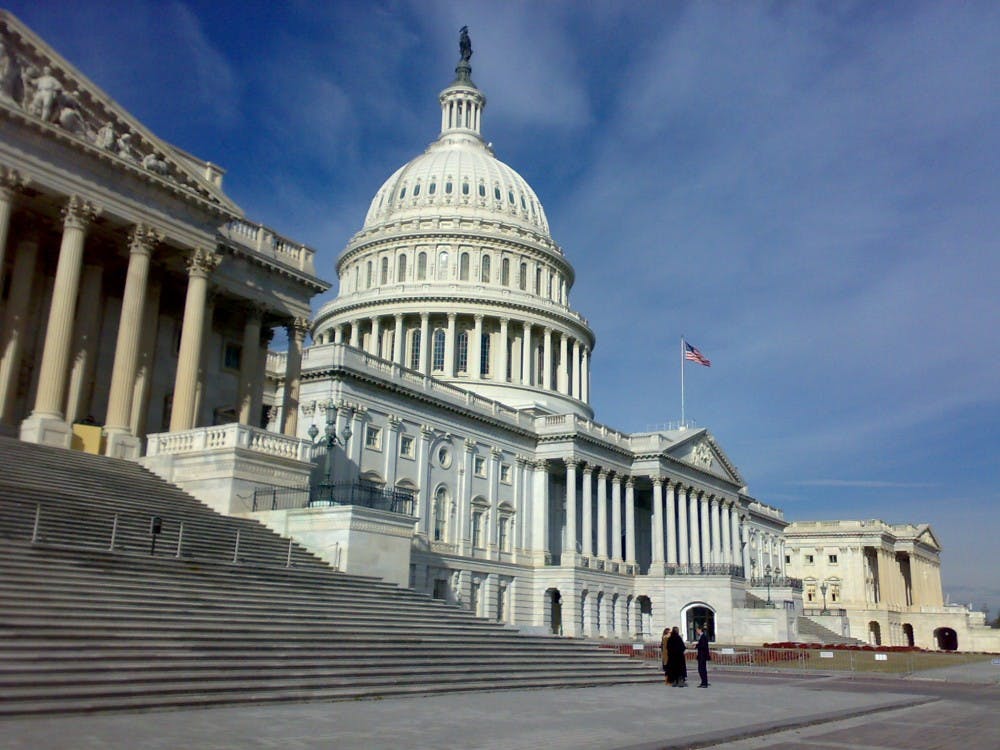The recent “Unite the Right” rally resulted in the death of Heather Heyer and the injury of over 30 others. Unsurprisingly, numerous congressional members were swift in criticizing the actions of white supremacists and neo-Nazis. However, despite such statements from congressional leaders and members, Congress has taken little to no concrete action in addressing the Charlottesville violence, abandoning an opportunity to respond with conviction and provide closure. Given the executive branch’s utter incompetence in handling the Charlottesville events — and general apathy in combating far-right terrorism, which has been responsible for 73 percent of violent extremist attacks in the United States since September 2001 — it is disappointing at best and insulting at worst to see Congress take the same path of lethargy in response to the events of Charlottesville.
At the very least, Congress could pass a concurrent resolution condemning the views of the rally’s participants. Resolutions have been passed for a variety of events, from commemorating the work of Fred Rogers, of Mr. Rogers’ Neighborhood, to setting Congressional budgets. Recently, and perhaps most importantly, Congress overwhelmingly passed in June 2017 a resolution condemning Turkey for the beating of protesters on U.S. soil by Erdogan’s security detail. As noted by the Associated Press, “The strong bipartisan support for the measure reflected lingering anger on Capitol Hill over the incident. But the House resolution carries no force of law.”
Yet, in dealing with Charlottesville — an event which has caused a bipartisan reaction similar to, if not greater than that of the Turkish bodyguard incident — Congress has failed to pass a resolution to condemn views of neo-Nazism and white supremacy. Indeed, Congress as a whole has failed to take any action despite calls from both parties — even though an undertaking such as passing a resolution would be uncontroversial and take little work. In a time of mass political polarization, the inability of Congress to respond as a unified body to the events that transpired in Charlottesville is a less-than encouraging sign.
It is arguable that Congress has more pressing issues to focus on — especially given recent events, such as the devastating ongoing effects of Harvey and upcoming debt ceiling and budget deadlines. There is some reason to these arguments — after all, the near-universal condemnation of white supremacists at the “Unite the Right” rally by both Democrats and Republicans would indicate that any debate over Charlottesville would be uncontroversial, with time better spent on other tasks. Furthermore, the horrific events which occurred at the Charlottesville rally have only accelerated the rate of removal of Confederate statues in numerous cities — and the overall public reaction may have been effective enough to not need a response from Congress. Nonetheless, there is a certain irony in the fact that Congress — which was established on the basis of representing the people — has been unable to represent the people’s overwhelming opinion against white supremacy and neo-Nazism through legislative action.
The events which transpired in Charlottesville were unforgettable, horrific tragedies. While it is heartening to see the response of individual Congressional members as well as the general public to the Charlottesville rally, it is nonetheless disappointing to see Congress’s inability to take action as a unified body in responding to the “Unite the Right” rally. Though Congress has been considered a reflection of the United States, its impotence in taking decisive action could not be any more different when compared to the public’s reaction to the events of Charlottesville. By choosing inaction, our legislative body projects the image that it does not consider the events of Charlottesville as something worth commenting on an image which serves only to embolden the views of white supremacists and neo-Nazis.
William Wong is an Opinion columnist for The Cavalier Daily. He can be reached at opinion@cavalierdaily.com.







